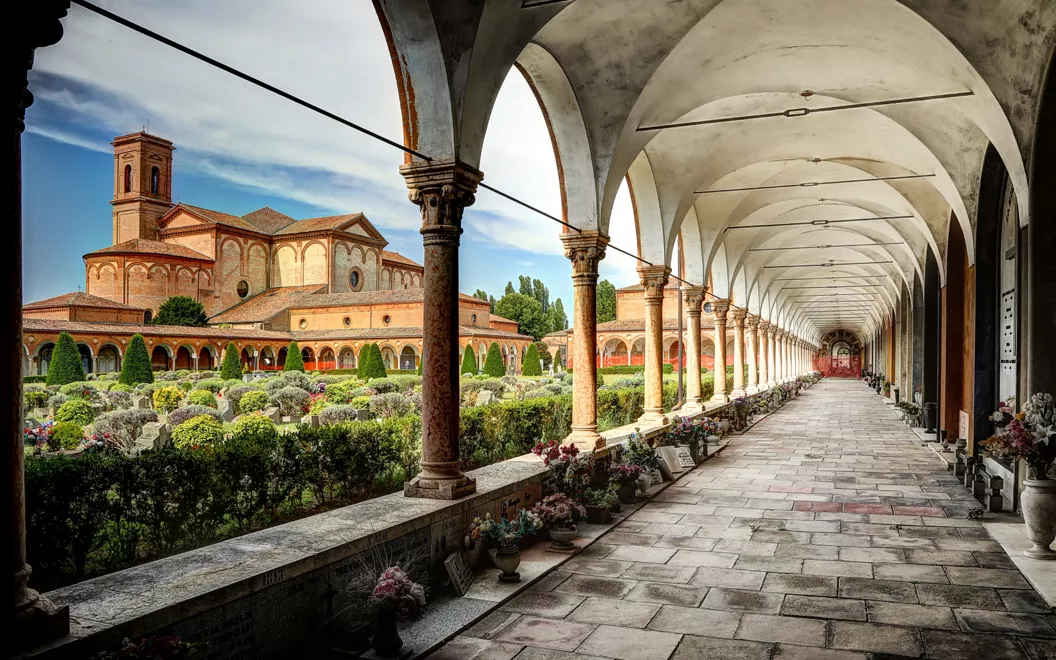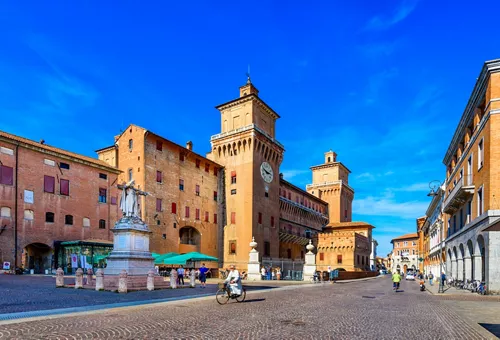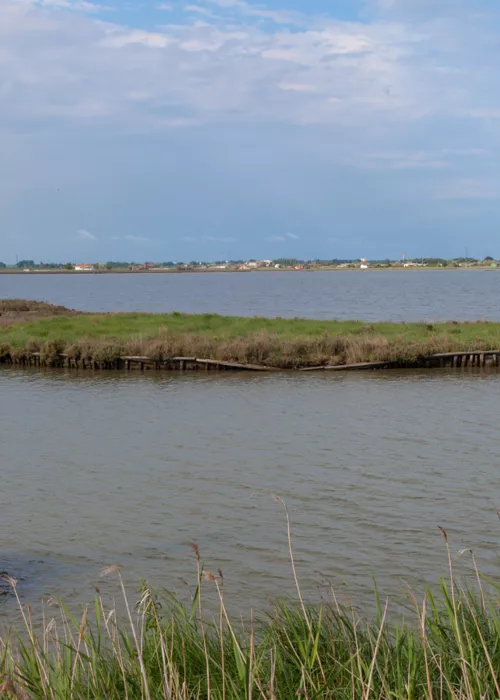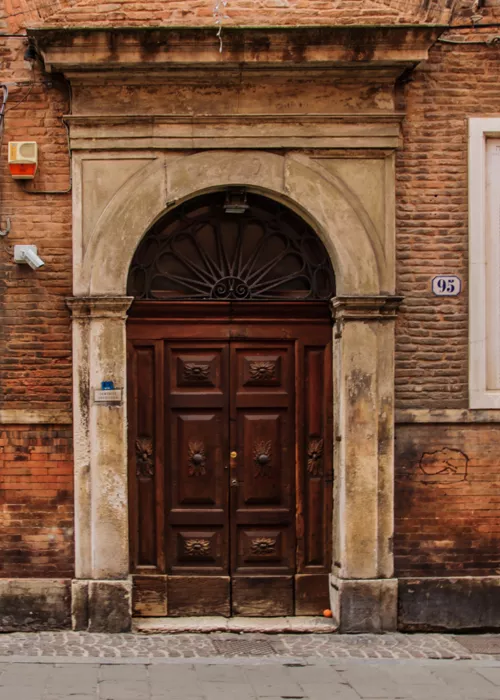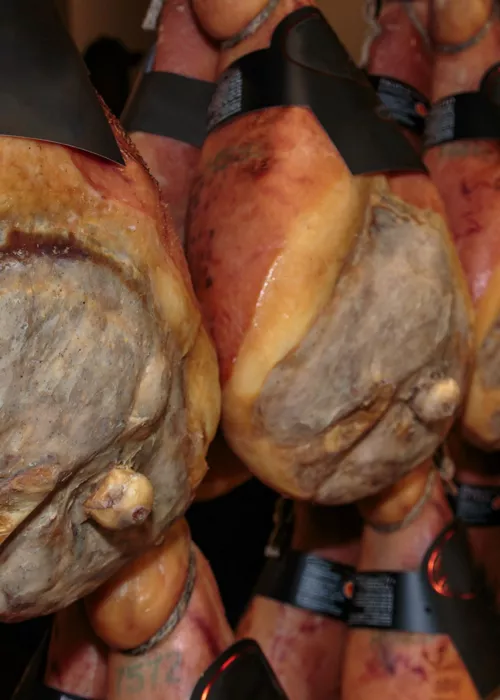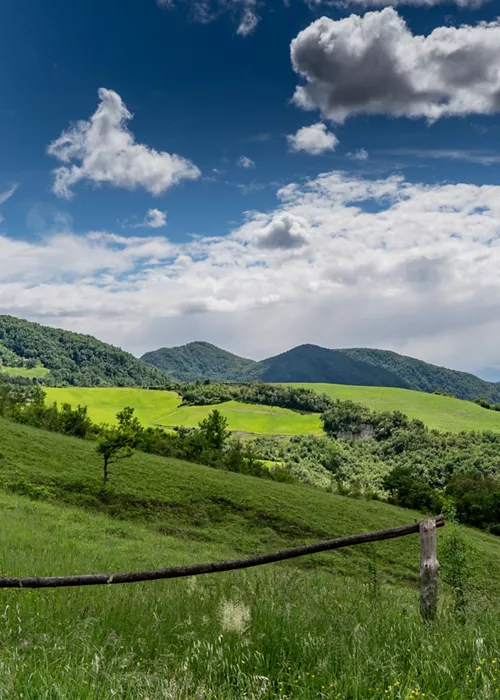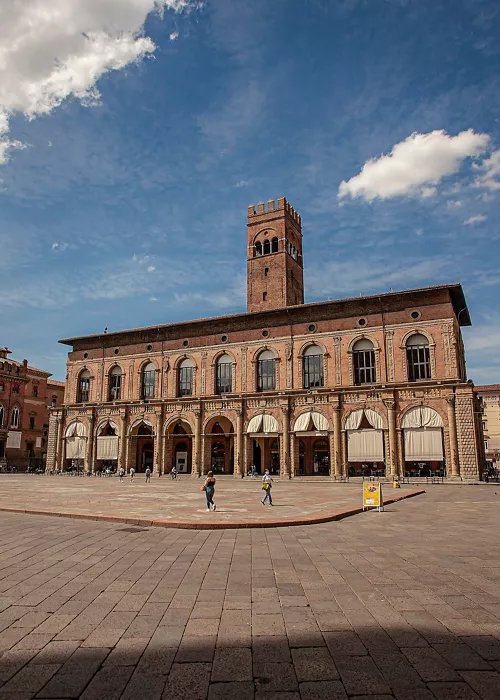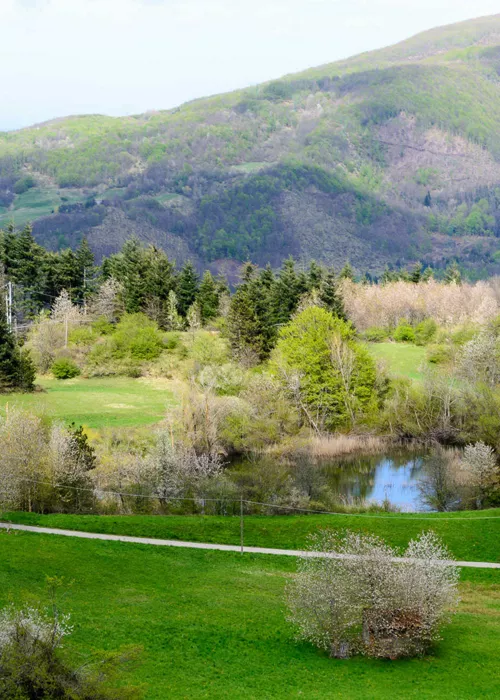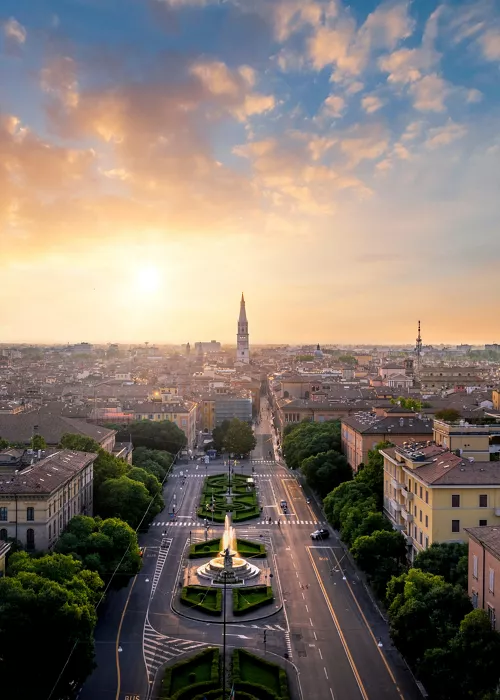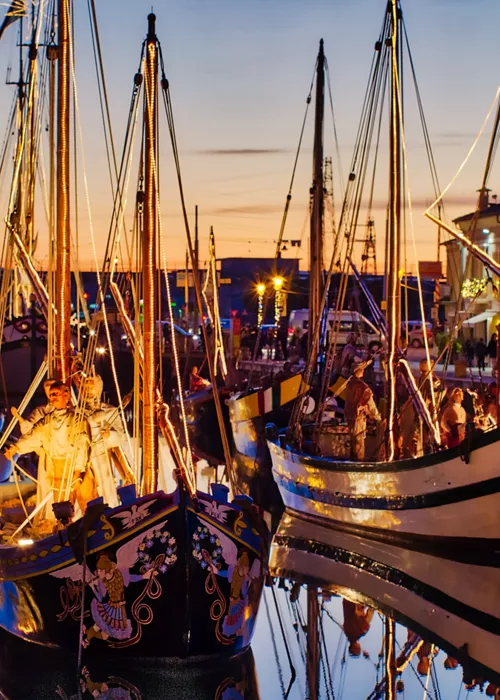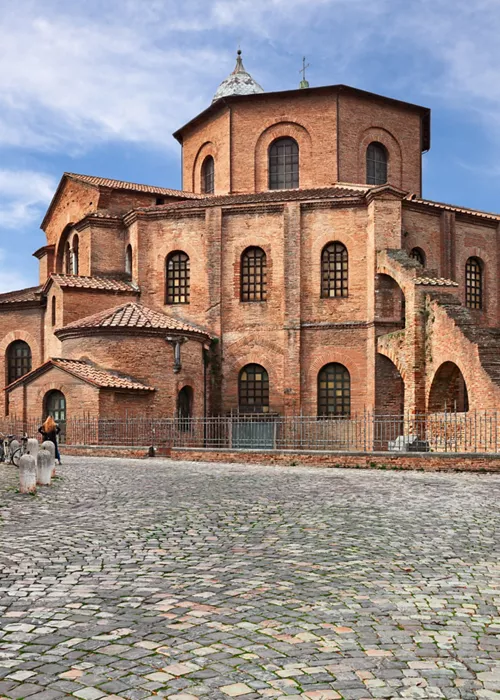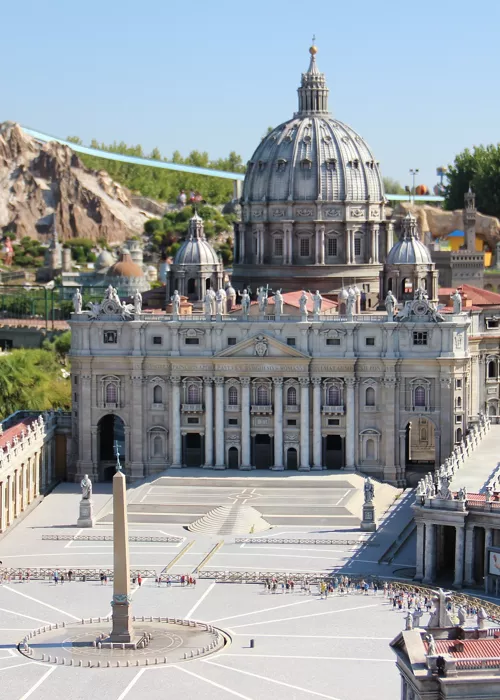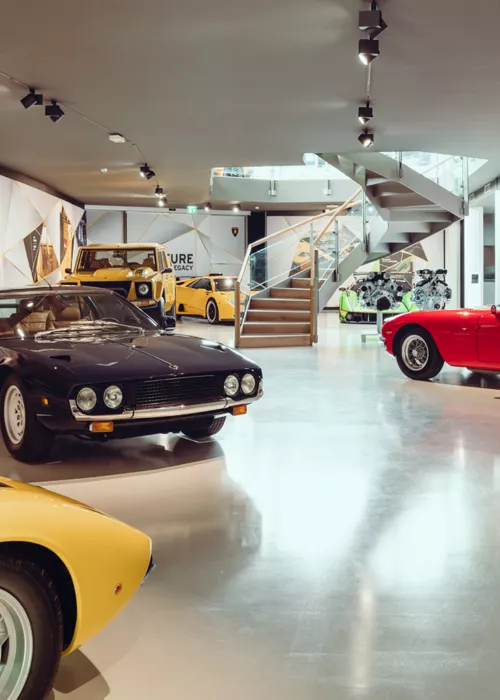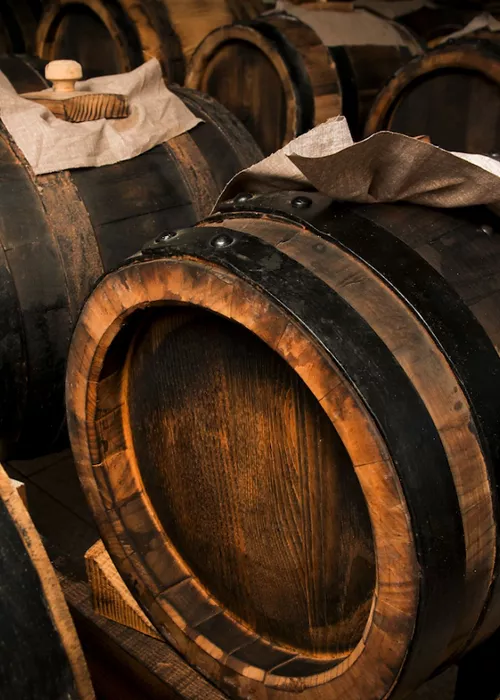With a book under your arm: Giorgio Bassani's novels
3 minutes
Born in Ferrara, Giorgio Bassani (1916-2000) was actually quite low-profile, but he was highly regarded as a writer: Strega Award for "Cinque storie ferraresi" in 1956; Viareggio Award for "Il giardino dei Finzi-Contini" in 1962; Campiello Award for "L'airone" in 1968. To commemorate his work, the Giorgio Bassani Foundation was established in Ferrara in 2002. It is based in a literary venue par excellence, none other than the house of Ludovico Ariosto. Three rooms on the ground floor display a special library, with the books that once belonged to Bassani, often with his notes or with dedications by their authors, but also with objects from his everyday life. You thus enter his study room and it is as if the writer had stepped out of it for a moment, and you become acquainted with his life, portrayed in texts and images as in a sequence of memories…
In the Jewish cemetery
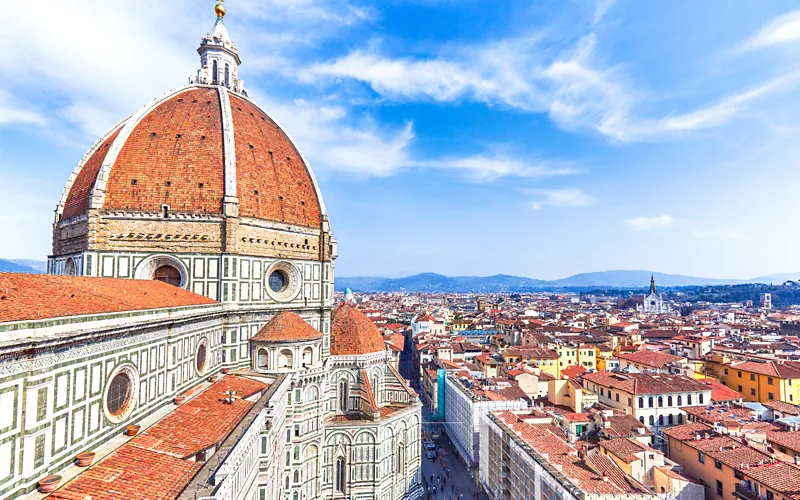
With the exception of his early youth, Bassani lived most of his life far from Ferrara: first in Bologna, during his university studies, then in Florence and Rome at the time of the racial laws and the War of Liberation. He remained in the capital city for the rest of his life working as a writer. Bassani, however, arranged to be buried in Ferrara in the Jewish cemetery in Via delle Vigne. His hometown commemorated him with a monument by sculptor Arnaldo Pomodoro, a bronze stele with engravings in which some see the typefaces of a typewriter and others the writer's minute handwriting. Scattered on the tomb are pebbles left with the left hand, the hand of the heart, by those who visited it. This is a Jewish custom, harking back to biblical times, when the dead were buried under mounds of stones, and adding a pebble was considered a material sign of remembrance.
The narrator of a city and its extraordinary Delta
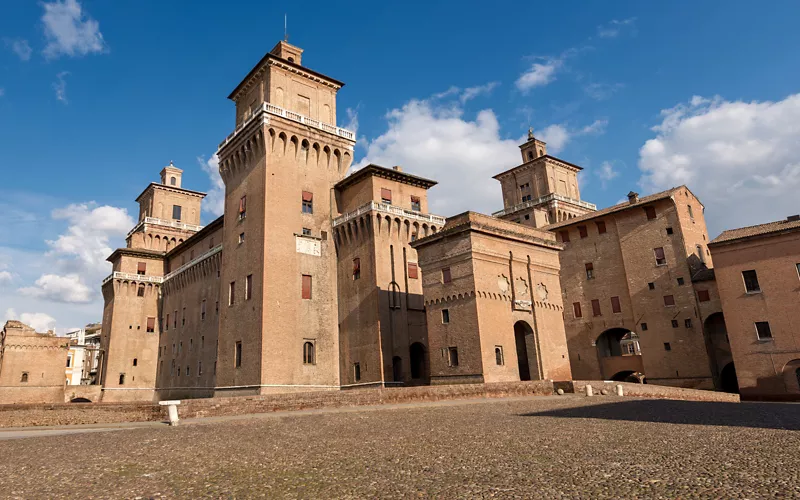
In 1999, Unesco registered "Ferrara, city of the Renaissance and its Po Delta" as a World Heritage Site. Ferrara, because it is an extraordinary example of urban planning in the Renaissance; the Delta, because it is a cultural landscape exceptionally preserved in its original features. In addition to that, this Unesco heritage is even more remarkable because it can boast an important role in literature. In fact, Bassani's novels are set against the backdrop of both the city - as in the case of "The Garden of the Finzi-Contini" - and the Delta - as in the case of "The Heron", set mostly in Codigoro. The writer had a deep knowledge of the Delta since he used to associate in particular with the Sullam family, who, like his own family, had Jewish origins and properties so extensive that they gave their name to a locality along the Po di Goro.
From successful novels to award-winning movies
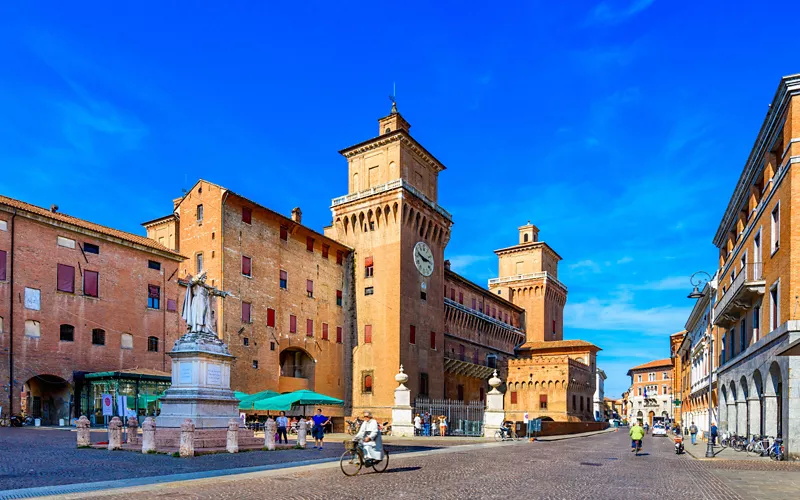
A visit to Ferrara and the Delta can therefore be approached, as they say, with a book under one's arm. But there is more: two of Bassani's novels have been adapted for the cinema: "Il giardino dei Finzi-Contini", in 1970, directed by Vittorio De Sica, starring Dominique Sanda and Lino Capolicchio (Oscar winner in 1972 for Best Foreign Film), and "Gli occhiali d'oro", in 1987, directed by Giuliano Montaldo, with a cast of considerable standing - Philippe Noiret, Rupert Everett, Stefania Sandrelli and Valeria Golino (David Award in 1988 for Best Soundtrack to Ennio Morricone). Both stories are evocative of the hardship of Bassani's time: the first is the story of a Jewish family struggling with racial persecution, against the backdrop of Ferrara. The second is the story of a homosexual doctor who suffers discrimination to the point of tragedy, in the settings of the Delta.
Commitment to the environment
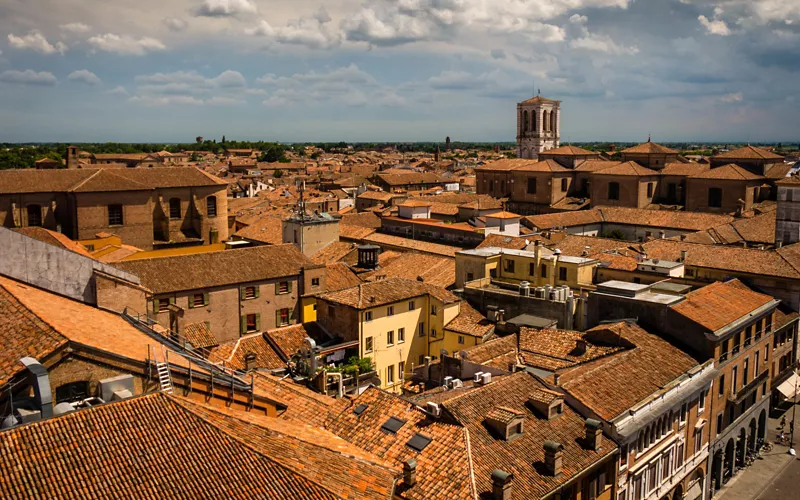
Bassani was the founder of the environmental association Italia Nostra in 1955, and he was then its president from 1965 to 1980. Here is what he almost prophetically wrote about the new organization's mission: "The cultural and natural heritage is an asset. The technological and industrial civilisation, in which we live, cannot do without it, if it wants to continue to exist. The industrial civilisation has proven to be able to give itself efficiency; now it must give itself a 'religion', i.e. it needs to be able to oppose anything that tends to turn man into a pure consumer. A predatory relationship with nature is no longer possible'! These words are as relevant today as ever.

